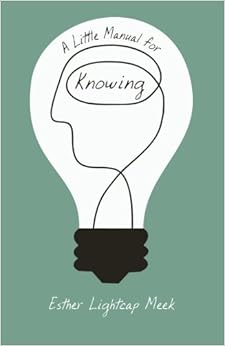 I'll tell you how I honestly felt: I felt like I had just swallowed whip cream after reading this. I knew I had just digested something but it left my largely unsatisfied. There were times throughout this 100 page book where I had very little clue on the actual contours of her thought were. There were some things that the text did very well. It explained subsidary-focal integration better than her larger work Loving to Know. It was if the author put together some of her more beautiful ideas but never really connects the dots.
I'll tell you how I honestly felt: I felt like I had just swallowed whip cream after reading this. I knew I had just digested something but it left my largely unsatisfied. There were times throughout this 100 page book where I had very little clue on the actual contours of her thought were. There were some things that the text did very well. It explained subsidary-focal integration better than her larger work Loving to Know. It was if the author put together some of her more beautiful ideas but never really connects the dots. I know my review sounds ambiguous. Part of the reason for that is because of the nature of Meeks writing. She is capable of deep philosophical discussion, yet the work just comes across as ethereal. I'll give you an example of a quote from the book that I think best demonstrates this issue:
"A second key strategy to invite the real is to place ourselves where what we are looking for is most likely to show itself. " (pg. 43)
This sounds good but practically, I'll confess that I have no clue what to do with this. Even after reading her larger work, I am puzzled on how to deal with this practically.
I recognize this sounds extremely harsh and probably seems like the whole book is a waste of time. So let me pull back and say that the book has some really great qualities. It is thought provoking and has some really great quotes. I really love Meek's discussion on how we need to change our thinking about how and why we acquire knowledge. All knowledge is essentially covenantal and knowing in relationship. There are many great diagrams as well to help make sense of what Meeks is saying.
So I guess I would recommend this work, provided that there is a teacher that can help the reader discern how the puzzle pieces fit together. It is short enough to keep the reader engaged and Meeks a lot of great examples to keep the pace moving along at a solid clip.
In the end, I feel as if this book is almost too truncated. That doesn't diminish the value of the work. I think the work will meet a need in a freshman philosophy course as a supplemental text. I also think that those looking to have their way of thinking challenged will find much to like in this work as well.
*Thanks to Cascade Books for providing a free review copy of this work in exchange for a fair review*